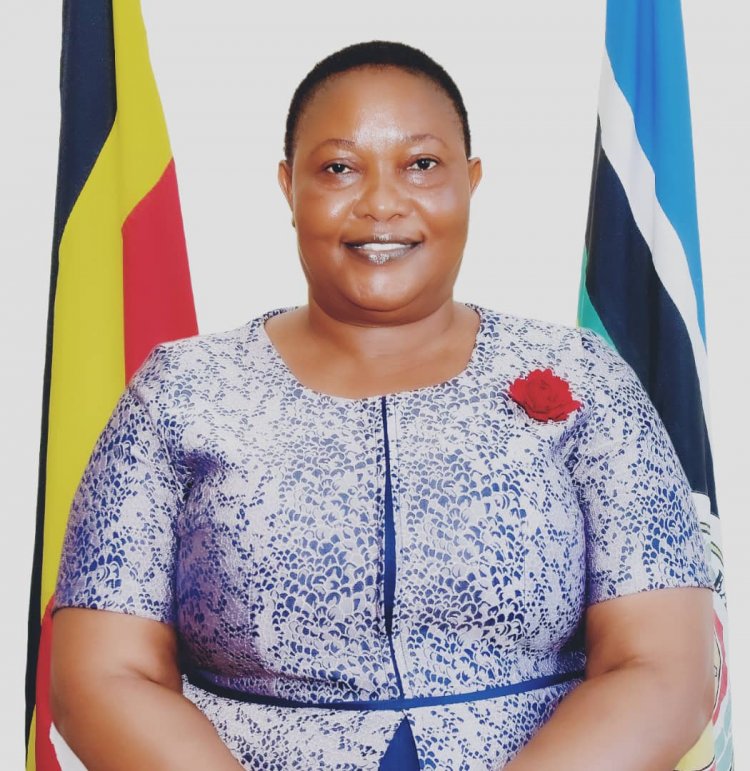Manifesto implementation is a collective responsibility
The Manifesto Implementation Unit is mandated to track, report and popularize the performance, progress and challenges of implementation of the Manifesto commitments and strategic guidelines and directives in the different MDAs, and to ensure that all MDAs Ministries are properly coordinated on how to deliver the Manifesto 2021-2026.

By Babirye Milly Babalanda
On Wednesday, I opened the meeting of Manifesto Focal Point Officers drawn from various Ministries, Departments and Agencies (MDAs) at the Conference Hall of Office of the President in Kampala. The meeting was organised by the Manifesto Implementation Unit for officers to come together to lay strategies on how the NRM Manifesto 2021-2026 will be delivered.
Delivering the Manifesto and Service Delivery, generally, go together, and they are my passion, as they are for most cadres and everybody who is on the job for the right reasons. Whenever we talk of “Manifesto Implementation”, we are talking “Service Delivery” and the roles and responsibilities that go securing the future of Ugandans. These are not political catchphrases but simple reminders for us to give our deployments meaning within the appropriate context.
The Manifesto Implementation Unit is mandated to track, report and popularize the performance, progress and challenges of implementation of the Manifesto commitments and strategic guidelines and directives in the different MDAs, and to ensure that all MDAs Ministries are properly coordinated on how to deliver the Manifesto 2021-2026.
It is important to note that the National Resistance Movement (NRM) Manifesto 2021-2026 was launched by H.E the President as a foundation to the January 2021 General Election.
Through the Manifesto for that election, we entered a social contract with the people of Uganda to “Secure their Future”. That was the theme of our pledge to all Ugandans, and that is what we are working on to achieve.
The NRM Manifesto is secured in the Vision 2040 and the 3rd National Development Plan. It commits to deliver Ugandans into middle-income status and to ensure sustainable development.
To further anchor the implementation of the Manifesto 2021-2026, we are guided by the 23 Strategic Guidelines and Directives issued by H.E. President Museveni at the first Cabinet Meeting held in June 2016, highlighting the critical priority areas that need to be attended to, in order to achieve our goals.
Over the years, the NRM Party has made steady progress in taking Uganda to modernity through Job creation and inclusive development.
Accordingly, the role of Manifesto Focal Point Officers (as articulated in the NDP III) is to ensure that all plans are properly aligned to the five priority areas of focus as enshrined in the Manifesto 2021-2026 and these are: Creating Jobs and Wealth for all Ugandans, Delivering Education, Health and Water, Ensuring Justice and Equity, Protecting Life and Property and Achieving Economic and Political Integration.
Through our successive remarkable Manifestos, we have been able to rally our people around policies that best serve their different ambitions and genuine interests. On them, we continue to build for the improvement of the people’s livelihood.
The peace, security and stability foundation has been erected and on it, modernity and prosperity have been developing over the years.
We are therefore confident that the journey of transforming Uganda is not only continuing but also bearing fruit. The country has now reached the irreversible take-off stage. By meeting the demands and needs of our people, we solidify our stand as a progressive nation.
It is unfortunate that while a lot is being justifiably achieved, there are gaps in reporting and communicating the milestones registered along the Manifesto trail.
Do we have communicators in MDAs? What do they communicate and who supervises them? Do they follow the discussions on issues of service delivery and manifesto implementation which negatively brand the image of government in the media e.g. on radios, TVs and newspaper publications? How often do they appear on media platforms to engage with the public? I want to see effective reporting and communication on the Manifesto in line with my inaugural strategy of having quarterly Manifesto Implementation reporting as opposed to annual reporting.
When the Manifesto is adequately tracked and widely reported on by the media, it pushes implementers to perform better-the woke performers excel while lukewarm and nonperformers are startled to wake up.
Civil servants often think that they are not affected by underperformance of Government as long as they earn their regular pay check but the fact is that Manifesto Implementation is collective responsibility.
NRM is only a policy vehicle and guarantor of the cause of Ugandans. Who is that trying to fail the advancement of the people’s aspirations?
Therefore, it is our collective responsibility to advocate for the Manifesto by sharing with the public information on government programs. This will restore hope in the public.
In my capacity as the supervisor of the APEX platform, I will come up with proposals to provide further guidance.
Quarterly reporting has kicked off and the support and timely input of Manifesto Implementation Focal Point Persons is urgently needed as coordinators of the process between the top and the regional level so that we can have a complete national picture of progress. Focal Point Persons are required to start sharing their information on progress of manifesto implementation with the RCCs/RDCs and deputies. This will equip the RCCs/RDCs with information to use in their media appearances.
If the concerned officers meet any resistance in the course of executing their duties, appropriate responses will be prescribed. For now, I encourage everyone to establish what is expected of them in their service within the arrangement of the NRM Manifesto 2021-2016, NDP 3, Vision 2040 and the Strategic Directives and Guidelines of H.E the President, and do exactly that.
*The author is the Minister for the Presidency*












